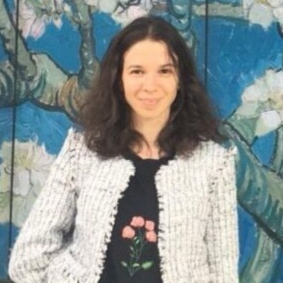In recent years, research on intelligent systems that can explain their inferences and decisions to (human and machine) users has emerged as an important subfield of Artificial Intelligence (AI). In this context, the interest in symbolic and hybrid approaches to AI and their ability to facilitate explainable and trustworthy reasoning and decision-making -- often in combination with machine learning algorithms -- is increasing. Computational argumentation is considered a particularly promising paradigm for facilitating explainable AI (XAI). This trend is reflected by the fact that many researchers who study argumentation have started to:
- apply argumentation as a method of explainable reasoning;
- combine argumentation with other subfields of AI, such as knowledge representation and reasoning (KR) and machine learning (ML), to facilitate the latter's explainability;
- study explainability properties of argumentation.
To get an overview of argumentation and XAI, interested researchers may consult Francesca Toni's invited talk about explainable reasoning at KR 2021, as well as the following survey papers:
- Argumentation and Explainable Artificial Intelligence: A Survey. The Knowledge Engineering Review. 2021.
- Argumentative XAI: A Survey. 30th International Joint Conference on Artificial Intelligence. 2021.
- Argumentation as a Method for Explainable AI: A Systematic Literature Review. 17th Iberian Conference on Information Systems and Technologies. 2022.
- Argumentative Explanation for Deep Learning: A Survey. IEEE International Conference on Unmanned Systems. 2023.
Topics
Topics include, but are not limited to:- Argumentative Explainability
- Formal definitions of explanations
- Defeasible reasoning and explanations
- Computational properties of explanations
- Neuro-symbolic explainable argumentation
- Explanation as a form of argumentation or defeasible reasoning
- Human intelligibility of formal argumentation
- Dialectical, dialogical and conversational explanations
- AI methods to support argumentative explainability
- Analogous topics for other defeasible reasoning approaches
- Argumentation for XAI
- Applications of argumentation for explainability in the fields of AI (e.g. machine learning, machine reasoning, multi-agent systems, natural language processing) and overlapping fields of research (e.g. optimisation, human-computer interaction, philosophy and social sciences)
- User-acceptance and evaluation of argumentation-based explanations
- Software systems that provide argumentation-based explanations
- Applications of other defeasible reasoning approaches to XAI
Program
- 9:25: Welcome
-
9:30 - 10:30: Keynote
- Srdjan Vesic “Explaining and Being Explained by Argumentation: From Logical Norms to Human Practice”
- 10:30 - 11:00: Coffee Break
-
11:00 - 12:30: Foundations of Argumentative Explainability
- 11:00: Daniel Peacock, Mansi, Nico Potyka, Francesca Toni and Xiang Yin. On the Impact of Sparsification on Quantitative Argumentative Explanations in Neural Networks
- 11:30: Gabriel de Olim Gaul, Adam Gould, Avinash Kori and Francesca Toni. Object-Centric Case-Based Reasoning via Argumentation
- 12:00: Michael Mueller, Srdjan Vesic and Bruno Yun. Interpreting Preferred Semantics in Structured Bipolar Argumentation
- 12:30 - 14:00: Lunch
-
14:00 - 15:30: Applications of Argumentative Explainability
- 14:00: Riccardo Felici, Emanuele De Angelis, Alessio Ferrato, Maurizio Proietti, Giuseppe Sansonetti and Francesca Toni. Argumentation-based Explainable Recommender System with ARES
- 14:30: Bahar İlgen, Akshat Dubey and Georges Hattab. PHAX: A Structured Argumentation Framework for User-Centered Explainable AI in Public Health and Biomedical Sciences
- 15:00: Isabel Feustel, Carolin Schindler, Niklas Rach, Wolfgang Minker and Stefan Ultes. Towards a Deeper Understanding: Effects of DK Integration for Conversational XAI
- 15:30 - 16:00: Coffee Break
-
16:00 - 17:00: Reflections
- Discussion: What are the main action items towards serious applicability?
- Update and call for submissions: Argumentation tool survey
Accepted Papers
- Daniel Peacock, Mansi, Nico Potyka, Francesca Toni and Xiang Yin. On the Impact of Sparsification on Quantitative Argumentative Explanations in Neural Networks
- Riccardo Felici, Emanuele De Angelis, Alessio Ferrato, Maurizio Proietti, Giuseppe Sansonetti and Francesca Toni. Argumentation-based Explainable Recommender System with ARES
- Bahar İlgen, Akshat Dubey and Georges Hattab. PHAX: A Structured Argumentation Framework for User-Centered Explainable AI in Public Health and Biomedical Sciences
- Gabriel de Olim Gaul, Adam Gould, Avinash Kori and Francesca Toni. Object-Centric Case-Based Reasoning via Argumentation
- Michael Mueller, Srdjan Vesic and Bruno Yun. Interpreting Preferred Semantics in Structured Bipolar Argumentation
- Isabel Feustel, Carolin Schindler, Niklas Rach, Wolfgang Minker and Stefan Ultes. Towards a Deeper Understanding: Effects of DK Integration for Conversational XAI
Submission
Submissions should be up to 12 pages in PDF format, including abstract, figures and references, and according to the CEUR-WS template (single column). Papers may include an appendix, but reviewers are not obligated to examine it. A paper's contribution must be substantial and credible even without the appendix. The reviewing will be single-blind. All submissions will be made electronically through the EasyChair conference system.Accepted papers will be included in CEUR-WS workshop proceedings after a careful review process. At least one of the authors will be required to register and attend the ECAI conference to present the paper in order for it to be included in the workshop proceedings.
Important Dates
- Paper submission deadline:
15 July 202522 July 2025 (AoE) - Notification of acceptance: 10 September 2025
- Camera-ready version: 1 October 2025
- Workshop: 26 October 2025
Organisation
- Kristijonas Čyras, Independent
- Timotheus Kampik, Umeå University & SAP
- Oana Cocarascu, King’s College London
- Antonio Rago, Imperial College London

|

|

|

|
Kristijonas Čyras |
Timotheus Kampik |
Oana Cocarascu |
Antonio Rago |
| Independent Researcher | Umeå University & SAP |
King's College London | Imperial College London |
Programme Committee
- Alison R. Panisson - UFSC
- Lars Bengel - FernUniversität in Hagen
- Elfia Bezou Vrakatseli - King's College London
- Alexandros Vassiliades - Aristotle University of Thessaloniki
- Johannes P. Wallner - TU Graz
- Yun Zhou - National University of Defense Technology
- Fabrizio Russo - Imperial College London
- Wijnand van Woerkom - Universiteit Utrecht
- Isabel Sassoon - Brunel University London
- Gianvincenzo Alfano - University of Calabria
- Zeynep G. Saribatur - TU Wien
- Nico Potyka - Cardiff University
- Tjitze Rienstra - Maastricht University
- Nikolaos Spanoudakis - Hellenic Mediterranean University
- Madeleine Waller - King's College London
- Bruno Yun - Univ Lyon, UCBL, CNRS, INSA Lyon, LIRIS, UMR5205, F-69622 Villeurbanne
- Roberta Calegari - Alma Mater Studiorum–Università di Bologna
- Mariela Morveli Espinoza - Federal University of Technology of Parana
- Loan Ho - Vrije Universiteit Amsterdam
- Serena Villata - CNRS - Laboratoire d'Informatique, Signaux et Systèmes de Sophia-Antipolis
- Jérôme Delobelle - Université de Paris, LIPADE, Paris, France
- Federico Castagna - University of Lincoln
- Andreas Brännström - Umeå University
- Lydia Blümel - Universität Leipzig
Sponsors



We thank CEUR-WS.org for supporting this workshop. Photo by Sterling Lanier on Unsplash